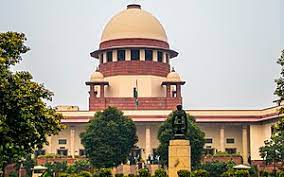NEW DELHI
In the case Kishan Chand Jain vs Union of India, the Supreme Court has emphasised the duty of the Central Information Commission and State Information Commissions to ensure that the mandates outlined in Section 4 of the Right to Information Act are strictly adhered to.
The bench, comprising Justice DY Chandrachud, Justice PS Narasimha, and Justice JB Pardiwala, highlighted that while Section 3 of the Act affirms the citizens’ ‘right to information’, Section 4 recognises the corresponding obligation of public authorities. The judgement stemmed from a Public Interest Litigation (PIL) filed by Kishan Chand Jain, urging the implementation of Section 4 of the RTI Act.
The Court underscored the principle of public accountability and its significance in shaping the dynamics between ‘duty bearers’ and ‘right holders’. It was observed that the Right to Information, rooted in Section 3, can only be effectively operationalised if it aligns with the obligations of public authorities outlined in Section 4. The role of the Central and State Information Commissions, as demarcated in Chapters III and IV of the Act, was particularly stressed. Their powers and duties, as detailed in Section 18, demand
The bench also pointed to the unique ‘Monitoring and Reporting’ capabilities conferred upon the Central and State Information Commissioners. It noted the need for these powers to be executed in alignment with the RTI Act’s core objectives – fostering transparency and accountability within every public authority.
In light of these observations, the Supreme Court directed both the Central Information Commission and State Information Commissions to vigilantly monitor and ensure the implementation of Section 4 of the RTI Act. This directive also encompasses adherence to guidelines and memoranda issued periodically by the Department of Personnel and Training. The court stressed that consistent monitoring by the concerned authorities is essential.

